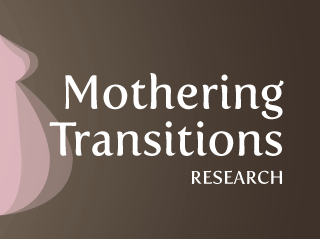Breastfeeding Peer Support Research Activities
Enhancing Peer Intervention Development, Implementation, and Effectiveness
To effectively develop, implement, and evaluate peer interventions, a clear understanding of peer support is required. As such, during Dr. Dennis’s doctoral and postdoctoral studies she conducted a concept analysis of peer support [published: International Journal of Nursing Studies]. Based on this theoretical work, she demonstrated that through mutual identification, shared experience, and sense of belonging, there is evidence to suggest that peer support can positively affect psychological and physical health outcomes via direct, buffering, and mediating effect models.
To complement this work, social support experts have strongly recommended comprehensive analysis of supportive interactions in order to promote theoretical understanding and the development of more effective supportive interventions. In the Breastfeeding Peer Support Trial, Dr. Dennis evaluated maternal and peer volunteer perceptions to assist other researchers in the development of effective yet satisfying peer support programs [published: Birth]. To provide a more comprehensive understanding of why peer support interventions may have a salutary effect, she developed the Peer Support Evaluation Inventory (available upon request). This self-report measure is based on extensive theoretical work that she completed during my postdoctoral research fellowship and consists of four subscales: (1) supportive interactions (e.g., emotional, appraisal, and informational support); (2) relationship qualities (e.g., perceived peer responsiveness, extent of interdependence, and peer qualities); (3) perceived benefits (e.g., potential health outcomes related to the three theoretical perspectives of social integration, stress and coping, and social constructionism); and (4) satisfaction with support (e.g., access, convenience, and perceived quality). Content validity was assessed by one Canadian and two U.S. social support experts. An initial psychometric assessment was completed during a pilot study she conducted during her postdoctoral fellowship. Cronbach’s alpha coefficients for the subscales were as follows: supportive functions = 0.95; relationship qualities = 0.96; perceived benefits = 0.92; and satisfaction = 0.96 [published: Canadian Journal of Psychiatry]. Further psychometric testing will be completed during her Postpartum Depression Peer Support Trial when this measure is administered at 12 weeks postpartum to mothers in the intervention group (n = 350). In addition to psychometric data, the results from this measure will assist in our understanding of (1) the type of support that is provided by peer volunteers, (2) the types of relationships developed between mothers and their peer volunteer, (3) potential perceived health benefits related to receiving peer support, and (4) maternal satisfaction with the peer support experience.
It is equally important to examine the peer volunteers’ perceptions of their peer support experience. To accomplish this Dr. Dennis developed the Peer Volunteer Experience Questionnaire (available upon request) and administered it in her breastfeeding and postpartum depression peer support trials. Questions, based on the volunteer literature, are related to (1) program training and expectations, (2) interactional characteristics, (3) volunteer roles, (4) intrapersonal effect, and (5) recruitment and retention. This measure will assist in the development of effective peer support programs through our enhanced understanding of peer volunteer recruitment, retention, and satisfaction.
